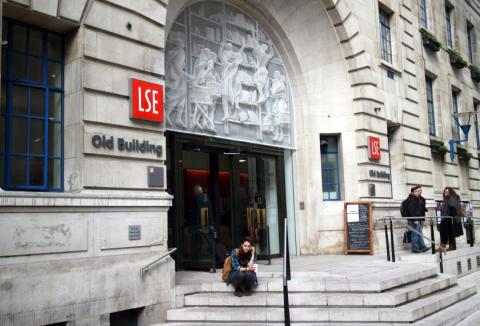I don’t quite remember when I first decided to study public policy. Over the past seven years I’ve been lucky to work with some really talented practitioners in both politics and the public service, and I loved the experience. At a certain point I realised that this meant a career in government – and that was that.
Having gotten my feet wet, I wanted to gain some more intellectual weight with a graduate degree. And like many of my colleagues, I wanted the London experience while I was still in my twenties. Perhaps this was because I read that many of my fellow Canadians who studied at the LSE went on to make great contributions to society, and I had simply mixed up causation and correlation. In any case, where better to study modern public policy than the birthplace of the welfare state here at the LSE (think William Beveridge)?
Since September I’ve been staying at a student hall, just a stone’s throw from the Thames (couched between the Tate Modern, Blackfriars Bridge, Shakespeare’s Globe and the Financial Times). Campus is a 25-minute walk across the river and down Fleet Street. There, I’m taking courses in social policy, philosophy and public policy, public management and behavioural economics.
In the first few weeks we covered how to measure well-being, how to ration healthcare, and the origins of the welfare state, to name only a few topics. I’ve had tremendous support from my academic adviser, who I’m told is a living legend in the field of social policy. And one of my professors even brought our class to pay our respects to Jeremy Bentham, the father of utilitarianism, where his preserved skeleton is on display (you can find him at University College London (UCL), sitting in his reading chair in a wooden cabinet in the atrium).
I’m learning loads each day and more importantly, what I’m learning feels relevant. Looking back, I can better understand and frame the work I’ve been doing in government, and how these approaches have worked or failed in other jurisdictions. One term in, I can already feel my perspective shifting from 50 to 50,000 ft.
Probably the most difficult part of attending graduate school overseas isn’t the education itself but rather the act of “putting life on hold”. I think this is especially true for students who have already started their careers, are a couple of years older or are in committed relationships (check, check, check).
But there are plenty of benefits, and I’m told that time at the LSE passes faster than we realise. Already, I’ve made friends with students from dozens of other countries. Having such an international peer group at the LSE has been a great advantage (not to mention great fun). Perhaps what unites us most is the great British tradition of getting together with colleagues at the end of the week for pints at the pub (in our case, George IV, a favourite on campus). In fact, I’m about to make my way there now.
These past few months have reaffirmed my decision to study at the LSE, exceeding my already lofty expectations, and I’m confident my time here will be worthwhile.
Matt Campbell is a policy analyst based in Halifax, Nova Scotia, Canada. Originally from Prince Edward Island, he is currently an MSc candidate at the London School of Economics and Political Science. You can find him on Twitter @MattCampbellca.

Comments